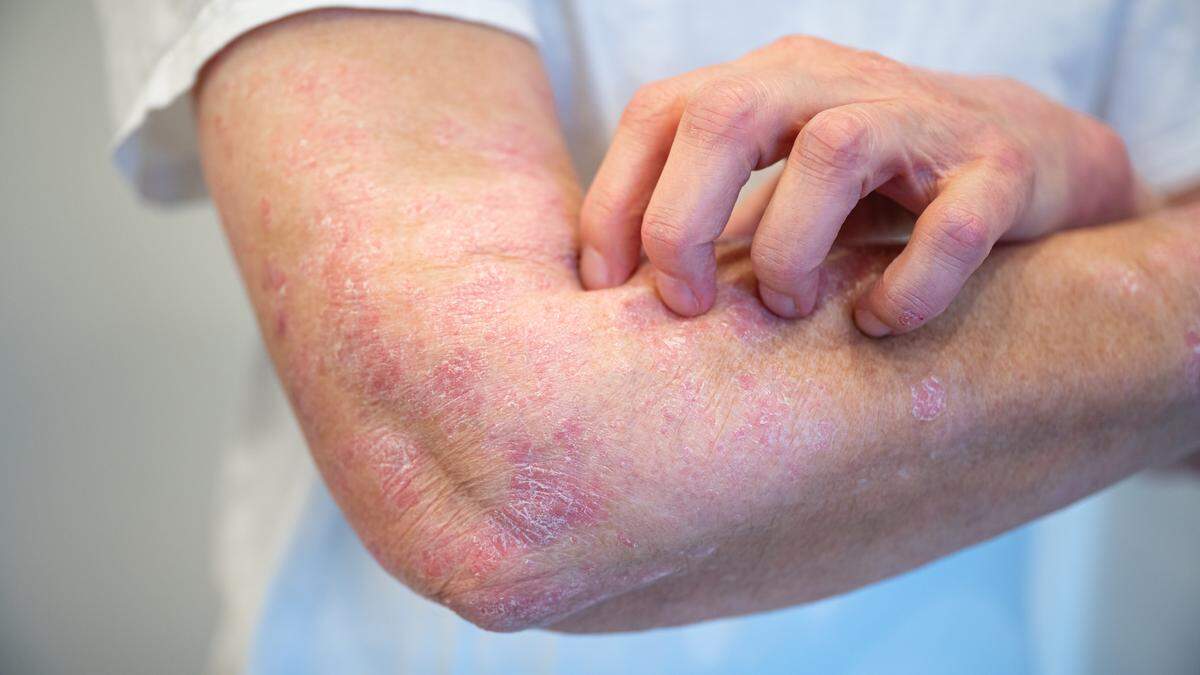Neurodermatitis, also known medically as atopic eczema, is a chronic inflammatory skin disease. International studies show that around 10-20% of children in industrialised countries, including Luxembourg, suffer from neurodermatitis. The figure is around 3-5% among adults.
The skin barrier of those affected is disrupted. This means that moisture is lost much more quickly and, at the same time, harmful substances, germs, and allergens have easy access. As a result, the immune system reacts excessively and inflammation occurs. Areas of skin become red, scaly, and itchy; in the worst cases, the eczema weeps.
Melanie Hilgers, a dermatologist in Luxembourg, treats many sufferers in her practice, in which she often sees a combination of neurodermatitis, asthma and allergies. Neurodermatitis also occurs in episodes. This means that there are also phases that are virtually symptom-free.
Babies and children are often affected on their cheeks. “When feeding baby food, parents should therefore make sure that the food actually ends up in the mouth and not on the sensitive skin. Recent studies suggest that food on damaged skin triggers allergies and neurodermatitis,” said Hilgers. In adults, the skin disease usually occurs on the hands, neck or in the crooks of the elbows and knees.
The itching is particularly distressing for those affected, as it can severely impair sleep at night and thus cause exhaustion.
Also read:Shingles: When a dormant virus reawakens
Triggers for a neurodermatitis flare-up
The list of triggers is long and varies from person to person. They include dry, warm indoor air in winter. Irritants can be found in soaps and cosmetic products, but skin contact with allergens such as dust mites and animal hair, as well as stress, can also trigger a flare-up.
Melanie Hilgers is a dermatologist in Luxembourg © Photo credit: Private
Hilgers recommends avoiding hot showers. Sweating, infections, and hormonal changes can also throw the skin out of balance. She advises keeping a skin diary to get a feel for triggers over time and then avoid these triggers as consistently as possible.
Atopic dermatitis cannot be cured, but treatment is available to soothe the skin, relieve inflammation, and prevent new flare-ups. The focus is on daily basic care. “Moisturising is essential,” said Hilgers. Rich creams or ointments – preferably fragrance-free – support the skin and keep it moist. Products containing ceramides are particularly suitable as they promote the skin barrier, she said.
Help in acute cases
In an acute flare-up, a care regime on its own is not enough. Creams containing cortisone can stop inflammation in the short term. “It used to be said that it was better to only use cortisone for a short time, but today it is recommended to use the active ingredient proactively and locally for a certain period of time, once or twice a week, more as a preventive measure to avoid flare-ups,” said Hilgers.
An alternative to cortisone is local calcineurin inhibitors, which also have an anti-inflammatory effect.
If all else fails and quality of life is severely impaired, there are now modern therapies that target the immune system directly. These include biologics such as dupilumab and tralokinumab. These are injected and specifically block certain messenger substances that otherwise fuel inflammation.
“When I prescribe these, I also explain the possible side effects, such as eye inflammation. However, one thing sufferers do not need to worry about with these biologics is an increased susceptibility to infection due to a weakened immune system,” said the skin expert. Another modern treatment option is Janus kinase inhibitors in tablet form.
Also read:Meet the Luxembourg skincare expert debunking social media myths
Consciously giving relief to the skin
To avoid stressing the skin, those affected should shower as briefly as possible and only in lukewarm water. When washing, it is also better to use mild, soap-free products. The dermatologist recommends moisturising shower oils. Apply cream immediately after cleansing while the skin is still slightly damp. Clothing also has a certain influence. Soft cotton is more comfortable for the skin than scratchy wool or synthetic fabrics. Laundry should be washed using fragrance-free detergents.
Those who tend to scratch itchy areas should keep their fingernails as short as possible and wear cotton gloves at night. One very important measure to take is to reduce stress, as this increases cortisol levels in the long term – and this in turn can trigger additional inflammation. So take time out in your everyday life. This not only means rest for the body and mind, but also for the skin. Yoga or meditation can also help you relax.
Be patient with yourself and your skin
Neurodermatitis is a challenging skin condition, but if take heed of your skin and get good advice from a dermatologist, you can achieve a lot. With consistent basic care, knowledge of your personal triggers, and modern-day therapies, flare-ups can be reduced and, above all, those affected no longer feel so helplessly at the mercy of their neurodermatitis.
